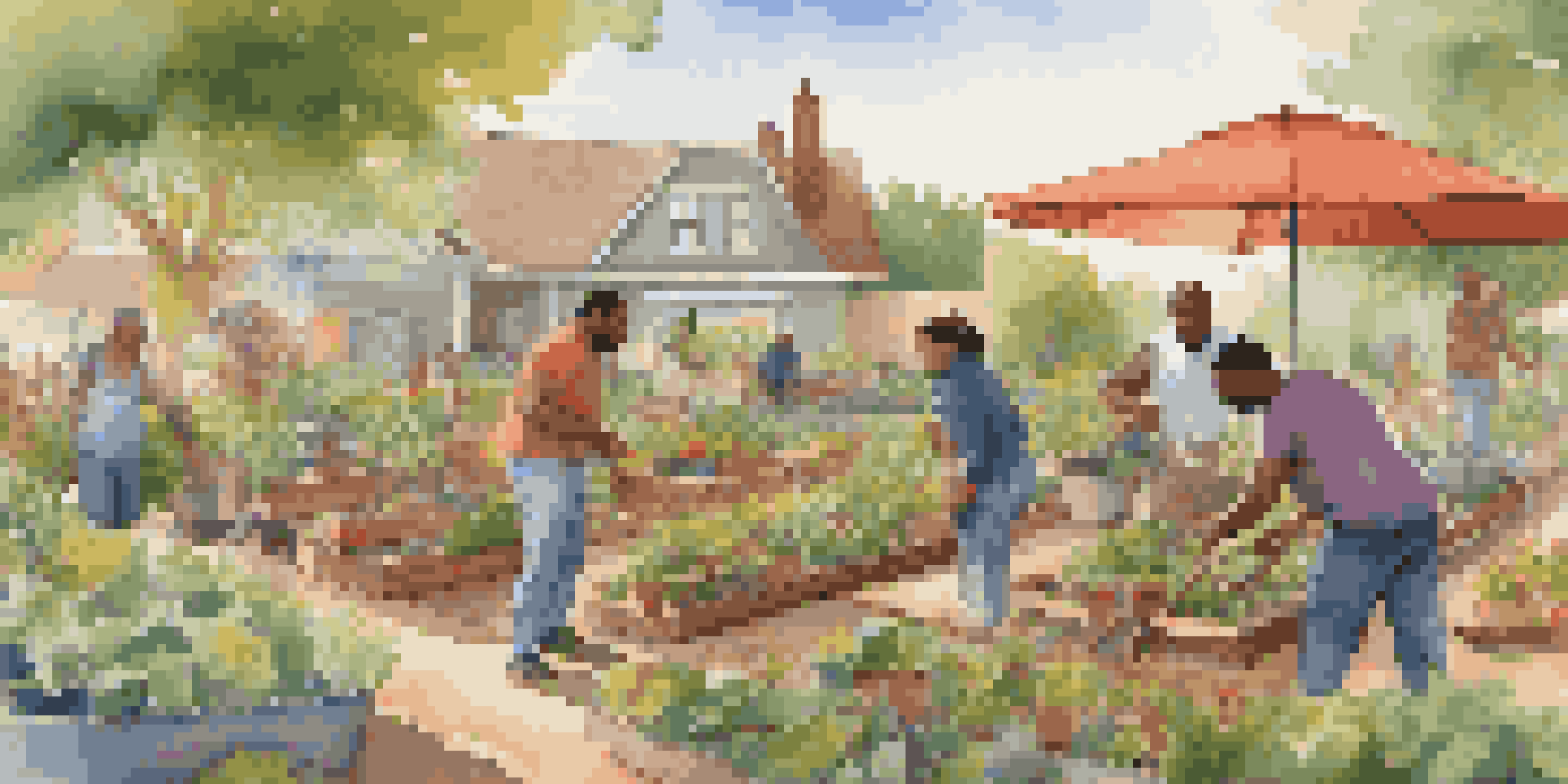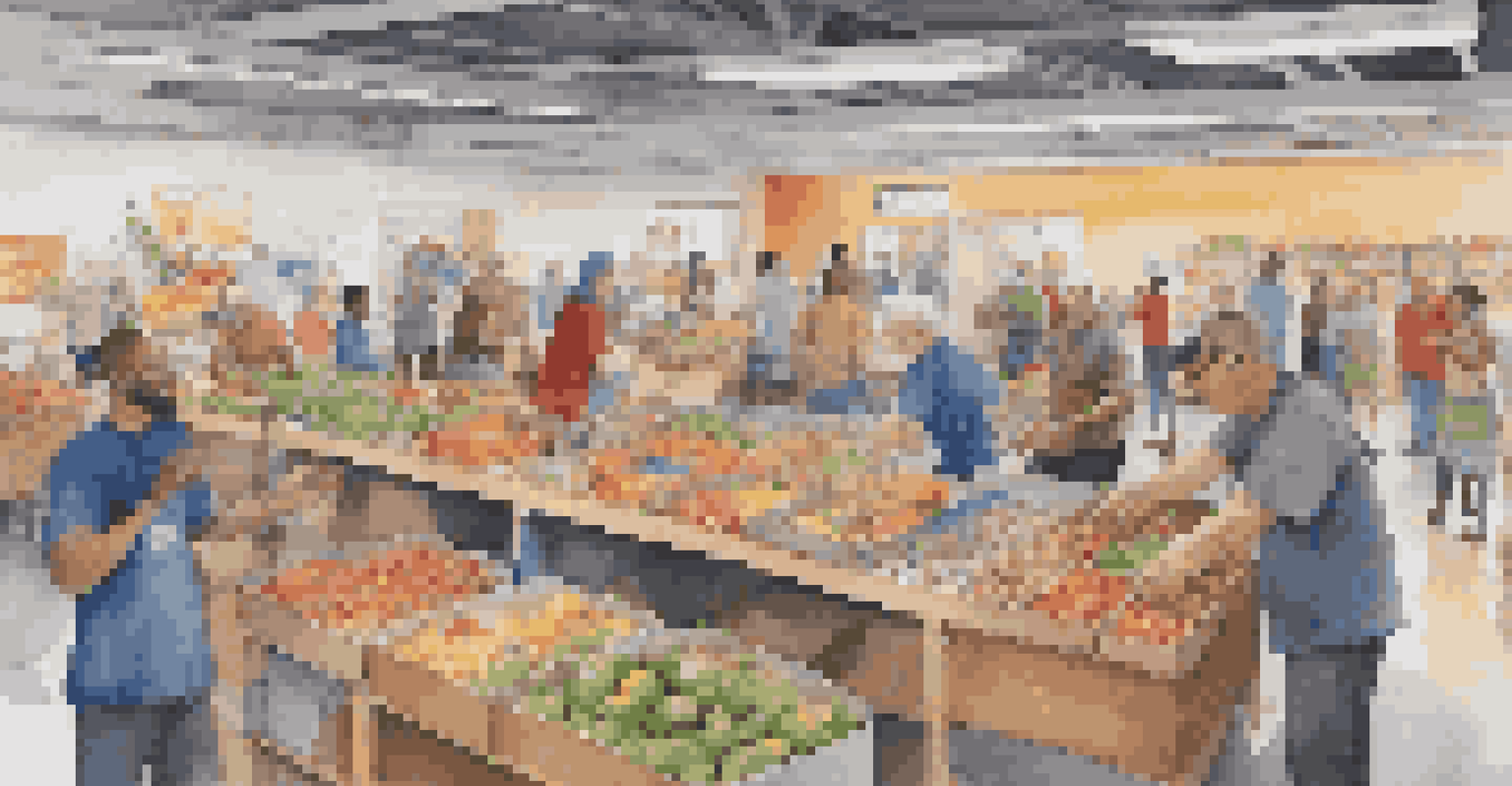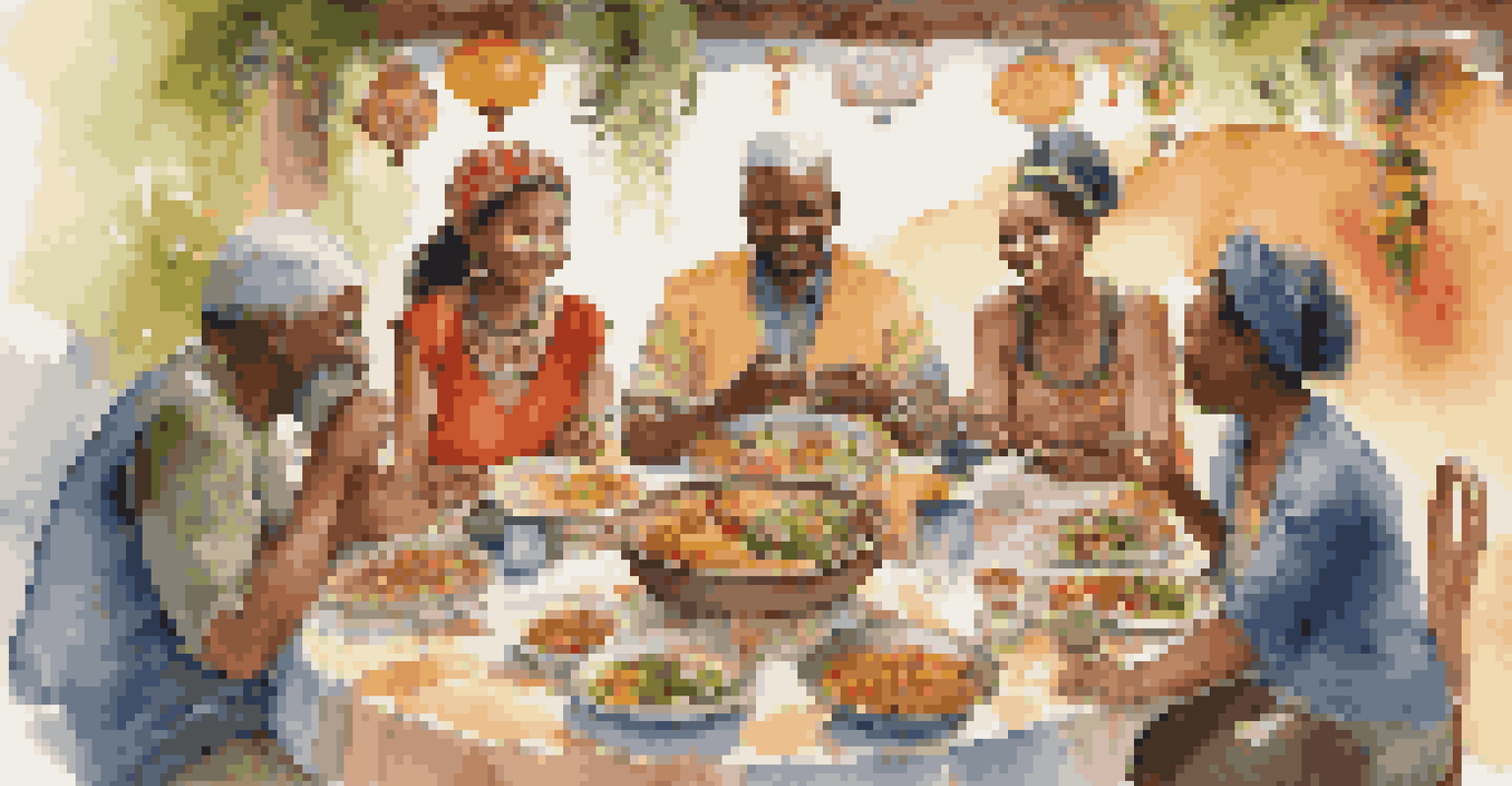Developing Cultural Competence Through Volunteer Opportunities

Understanding Cultural Competence and Its Importance
Cultural competence is the ability to understand, communicate with, and effectively interact with people across cultures. It's crucial in today's globalized world, where diverse perspectives enrich our communities. Developing this competence helps break down barriers, fosters empathy, and promotes inclusivity, making it essential for personal and professional growth.
Cultural competence is the ability to engage effectively with people from different cultures, which enhances both personal and professional relationships.
Imagine attending a family gathering where everyone speaks a different language. At first, it might feel overwhelming, but as you learn to navigate conversations, your understanding deepens. Similarly, cultural competence allows us to bridge gaps and appreciate different viewpoints, enhancing our social fabric.
By actively seeking to improve our cultural competence, we not only enrich our own lives but also contribute to a more harmonious society. This journey, while personal, can be significantly enhanced through engaging with volunteer opportunities that expose us to diverse cultures and practices.
How Volunteering Opens Doors to Diverse Communities
Volunteering is a gateway to connect with people from various backgrounds. Whether you’re helping at a local food bank, tutoring children from immigrant families, or participating in community clean-ups, these experiences allow you to interact with diverse groups. Each interaction is a chance to learn about different cultural norms, values, and traditions.

For example, volunteering at a community center can introduce you to a variety of cultural festivals and events. You might find yourself celebrating Diwali with a new friend or participating in a Hispanic Heritage Month event. These experiences can broaden your perspective and deepen your appreciation for different cultures.
Cultural Competence Enhances Growth
Developing cultural competence fosters empathy, inclusivity, and personal growth in a diverse world.
Moreover, when you volunteer, you’re not just giving your time; you're also creating meaningful connections with others. These relationships can lead to friendships that transcend cultural differences, giving you firsthand insights into various cultural experiences.
Learning Through Service: A Unique Perspective
One of the most rewarding aspects of volunteering is the opportunity to learn through service. When you engage with communities in need, you gain insights that textbooks or classrooms often overlook. This hands-on learning process helps you understand the challenges faced by different groups, fostering empathy and a greater sense of social responsibility.
Volunteering is the ultimate exercise in democracy. You vote in elections once a year, but when you volunteer, you vote every day about the kind of community you want to live in.
Consider the experience of working with refugees. As you assist them in finding employment or accessing education, you learn about their struggles and resilience. This not only enriches your understanding of their culture but also highlights the systemic issues they face, prompting you to think critically about solutions.
Through these experiences, you not only develop cultural competence but also become an advocate for social change. Your role as a volunteer transforms from simply providing aid to understanding the broader context of the communities you serve.
Building Relationships Across Cultures
Volunteering fosters relationships that are often built on mutual respect and understanding. When you work alongside individuals from different backgrounds, you learn to appreciate their perspectives and experiences. These interactions can challenge stereotypes and promote a deeper understanding of cultural nuances.
For instance, consider a community garden project where you collaborate with neighbors from various ethnic backgrounds. As you plant seeds and share stories, you might discover culinary traditions or gardening techniques unique to each culture. This exchange not only enriches your knowledge but also strengthens community bonds.
Volunteering Connects Diverse Groups
Engaging in volunteer work provides opportunities to build relationships and learn from people of various cultural backgrounds.
Building relationships in this way creates a network of support and understanding that transcends cultural barriers. It reminds us that, despite our differences, we share common goals and aspirations, fostering a sense of unity within diversity.
Navigating Cultural Challenges in Volunteer Work
While volunteering offers incredible opportunities for cultural exchange, it can also present challenges. Misunderstandings can arise due to different cultural norms or communication styles. Recognizing and addressing these challenges is key to fostering a supportive environment where everyone feels valued.
For example, you may encounter a situation where direct communication is preferred in one culture, while another values indirect approaches. Being aware of these differences can help you navigate conversations more effectively and avoid potential conflict.
Embracing these challenges is part of the learning process. By being open-minded and adaptable, you can turn potential misunderstandings into valuable lessons about cultural sensitivity and awareness.
The Ripple Effect: Inspiring Others Through Cultural Competence
As you develop your cultural competence through volunteering, you have the power to inspire those around you. Sharing your experiences and insights can encourage friends, family, and colleagues to engage in similar activities. This ripple effect can lead to a broader cultural understanding within your community.
Picture a friend who, after hearing your stories about volunteering, decides to join you on your next project. Together, you can explore new cultures and perspectives, further amplifying the impact of your efforts. This collective experience can foster an even deeper appreciation for diversity.
Learning Through Service Inspires Change
Volunteering allows for hands-on learning, promoting social responsibility and advocacy for cultural understanding.
When we inspire others to embrace cultural competence, we contribute to a more inclusive society. Each person who joins the journey adds to the collective understanding, creating a richer tapestry of experiences that benefits everyone.
Taking the Next Step: Finding Volunteer Opportunities
Finding the right volunteer opportunities to develop cultural competence can be an exciting journey. Start by exploring local organizations that focus on cultural diversity, community service, or social justice. Websites like VolunteerMatch or local community boards can help you identify programs that align with your interests.
Consider reaching out to cultural centers, schools, or non-profits that serve diverse populations. Many organizations welcome volunteers for various projects, from tutoring to event planning, allowing you to engage with different communities. Your willingness to step out of your comfort zone is key to finding meaningful opportunities.

Remember, every small action counts. Whether it’s a one-time event or a long-term commitment, each experience adds to your understanding and appreciation of cultural diversity. So, take that leap and start your journey toward greater cultural competence through volunteering.